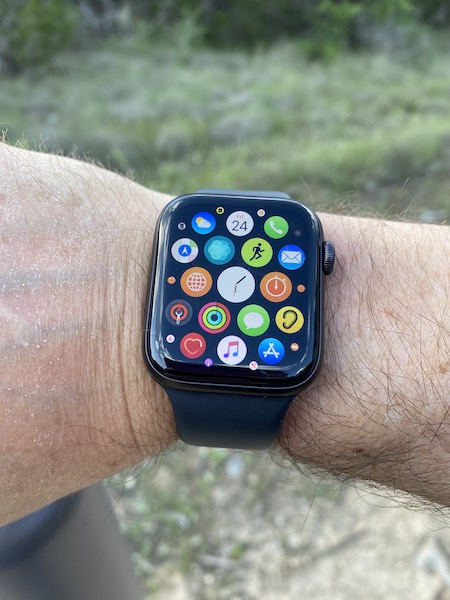
The Apple Watch is a miracle. The wrist-borne computer keeps users in touch with, well, everything. Teenage Apple Watch owners use them to stay connected (text, social media, video chat, voice), document their lives (photos, videos, posts), track their fitness, play games, listen to music/podcasts and so much more. How many teenager Apple Watch users are there? The stats may blow your mind.
According to the 2022 Taking Stock With Teens study by investment bank Piper Sandler, 31 percent of American teens wear an Apple Watch. A further 16 percent plan to buy one. This means 47 percent of American teens are either planning to buy or already own an Apple Watch. The problem?

Over at The Atlantic, San Diego State University psychology professor Dr. Jean M. Twenge (above) shares an abridged version of her book iGen: Why Today’s Super-Connected Kids Are Growing Up Less Rebellious, More Tolerant, Less Happy—And Completely Unprepared for Adulthood.
The answer to the title’s question is in the title: super-connectivity. Ms Twenge focuses exclusively on smart phones’ impact on current teenagers. Her conclusions on their effect on iGen are terrifying.
“Teens who spend three hours a day or more on electronic devices are 35 percent more likely to have a risk factor for suicide, such as making a suicide plan…

“2007, the homicide rate among teens has declined, but the suicide rate has increased. As teens have started spending less time together, they have become less likely to kill one another, and more likely to kill themselves. In 2011, for the first time in 24 years, the teen suicide rate was higher than the teen homicide rate…
“Depression and suicide have many causes; too much technology is clearly not the only one. And the teen suicide rate was even higher in the 1990s, long before smartphones existed. Then again, about four times as many Americans now take antidepressants, which are often effective in treating severe depression, the type most strongly linked to suicide.“

When it comes to the transition from adolescence to adulthood, Ms. Twenge is unequivocal: smart phone connectivity is causing social isolation, delaying the journey to independence. As bad as the smart phone is for our kids, the teenage Apple Watch is worse. As Ms. Twenge discovered in conversation with an eleven-year-old.
“Athena told me that when she does spend time with her friends in person, they are often looking at their device instead of at her. ‘I’m trying to talk to them about something, and they don’t actually look at my face,’ she said. ‘They’re looking at their phone, or they’re looking at their Apple Watch.’”

The Apple Watch is the smart phone made omnipresent. Unavoidable. Inescapable. Relentless. Teens wear it from waking until sleep (of which today’s teens are getting dangerous little). In fact, many of them wear it in bed, interrupting their sleep.
The teenage Apple Watch is also a huge distraction from waking activities. Its constant calls for attention degrades teens’ ability to focus on, well, anything: school work, sports, face-to-face communication, watching a movie, etc. Not to mention the watch’s impact on situational awareness – a potential life-or-death safety issue when driving, biking, clubbing and walking down the street.

Ms. Twenge’s answer is surprisingly tame: “some mild boundary-setting could keep kids from falling into harmful habits.” I remember seeing an Apple ad in The Atlantic a while back so…
The correct answer is obvious: delay giving your child a smart phone (the average teen gets their first smartphone at 12.5-years-old) and don’t give them an Apple Watch. Full stop. In fact, you may want to ditch your smart watch (Leghorn: How A Fossil Gen 6 Smartwatch Ruined My Life). Permanently.

I would never get my kids a smart phone or an iWatch. Not a chance. They’re straight up poison, IMO. Yes, they’re fun. But they’re addictive and dangerous and entirely unnecessary. I gave up my own smart phone a year ago and have seen literally no negative side effects to not having it. No amount of “convenience” is worth the risk.
Love me some dumbphones, used one for several pandemic years, but in the white-collar Anglosphere the iMessage ecosystem is the Theodosian Walls, and Constantinople is “a life that involves women.”
@ RF … smartphone:wearable (2023)::pocket watch:wristwatch(pre Quartz Crisis)? Not from a technological perspective, but from a fashion and social status perspective?
Yes. And the pocket watch was MILES more elegant and remarkable (in its own way).